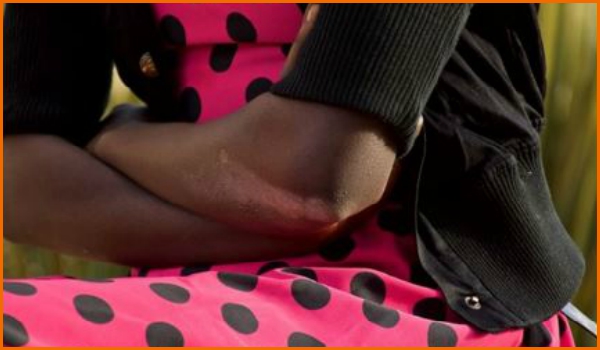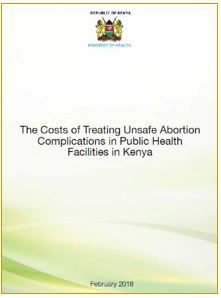
FIDA Kenya and the Center for Reproductive Rights (CRR) Kenya have been in court this month once again, for the continuation of the case they filed challenging the decision by the Ministry of Health to withdraw the Standards and Guidelines for Reducing Morbidity & Mortality from Unsafe Abortion in Kenya 2012 in December 2013. They were also representing a petition on behalf of an adolescent girl called JMM who in 2014, at the age of 15, had an unsafe abortion following rape and on behalf of all Kenyan women of reproductive age who have been denied access to safe abortions. It was announced publicly after the case reopened in July that JMM had died a slow and painful death in June 2018 as a result of her injuries.
FIDA is arguing that the absence of standards and guidelines means that health workers who want to provide safe abortions or treat complications of unsafe abortion have no access to training in abortion care, including to develop life-saving skills, or be able to provide women with accurate information. The Guidelines also clarified when abortion was legal, or not, which providers considered protective for themselves so as not to risk prosecution. With CRR, they are calling for training for abortion providers to be reinstituted along with the guidelines and with Medabon, the combination mifepristone–misoprostol abortion pill packet, which was also withdrawn at the time.
.The 2010 text added to the Constitution reads: “Abortion is not permitted unless, in the opinion of a trained health professional, there is need for emergency treatment, or the life or health of the mother is in danger, or if permitted by any other written law.”
JMM had to be transferred between four separate facilities because medical staff did not have the knowledge, training or equipment to treat her. She had suffered kidney failure and had been bedridden for several months before her death. The Court will need to judge whether the government of Kenya is responsible for her death, and those of other girls and women who have died from unsafe abortions, and whether compensation is due.
The Ministry of Health is reported to have said they are in the process of getting together new guidelines on safe abortion, primarily to help poor women who end up getting dangerous abortions from untrained backstreet providers. According to Dr Joel Gondi, Head of the Reproductive and Maternal Health Service Union, the government’s primary focus is to preserve life and reduce maternal morbidity.
The hearing was adjourned until 18 September; judgment is expected before the end of the year.

Meanwhile, research published in February 2018 indicates that nearly half a million induced abortions – most of them unsafe – occurred in Kenya in 2012, resulting in different forms and intensities of complications. Most were treated in public health facilities. This study looked at estimated costs of these services, based on reported cases, by severity of complications, based on nationally representative data in public facilities on the direct costs of healthcare provider time, drugs and supplies needed to provide complete treatment to one patient; and secondary data on women hospitalised in public health facilities for complications of induced abortion.
Results show that the financial cost of treating of unsafe abortion complications in public health facilities is staggering. On average, to treat a woman for complications from an unsafe abortion requires 7.4 hours of health care personnel time, ranging from 5.5 hours for mild complications to 6.7 hours for moderate complications, and up to 12.4 hours for the treatment of severe complications, involving procedures such as pelvis abscess drainage or cervical/vaginal tear repair. Most of thiswas time spent by nurses and medical officers. In 2016, the treatment costs for complications in public facilities will estimated to reach Ksh 533 million (about US$6.3 million).
SOURCES: Reuters, by Nita Bhalla, Thomson Reuters Foundation, 12 July 2018 ; Citizen Digital, by Dzuya Walter, 11 July 2018 ; The Guardian, by Rebecca Ratcliffe, 10 July 2018 ; The Star, by Carole Maina, 11 July 2018
RESEARCH STUDY: The Costs of Treating Unsafe Abortion Complications in Public Health Facilities in Kenya. Ministry of Health, African Population and Health Research Center, Ipas, February 2018.
Other recent articles from Kenya:
Girl, 15, remanded for procuring an abortion in Baringo
Medic, 65, in jail after woman dies during abortion procedure
Abortions on the rise in Kenya as Trump cuts Marie Stopes funding
Woman, 60, charged with murder after girl dies during abortion
Trump’s ban on global abortion funding has led to more abortions



